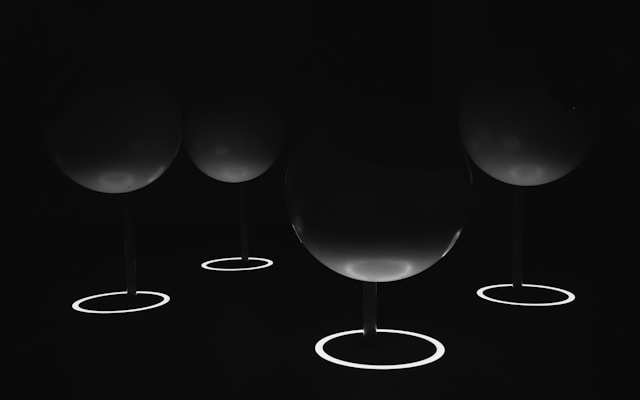Each week I write a post, I struggle with finding the right balance of timeless principles and timely topics. Even though my intention is to explore elevating ideas from various wisdom sources that may help us enrich our lives, I always experience the pull of quotidian quicksand that drags me deeper and deeper into the muck.
In the book, Making the Timeless Timely: Thoughts and Reflections of a Reform Rabbi, Samuel Stahl quotes the syndicated columnist, Sydney J. Harris[1]:
“The three most difficult tasks in life are neither physical feats nor are they intellectual achievements. Rather they are moral acts: 1) To return love for hate, 2) to include the excluded, and 3) To say I was wrong.”

Those three principles seem very timely in today’s world. I wish we were seeing them applied more broadly.
For me, the Tao Te Ching is a rich source of timeless principles about integrity, the way of life, and mystic wisdom from ancient China. A few years ago, I had the honor and privilege of editing Luke Chan’s translation of the Tao Te Ching which he published under the title, The Eight Secrets of the Tao Te Ching[2]. I am so grateful for that opportunity because it gave me the chance to be intimately involved with such a timeless treasure and a timely translation. As readers of this blog know, I often quote the Tao Te Ching in my posts because I find such wisdom in each chapter. Simplistically, the main message in the Tao Te Ching is to love yourself, love others, and love Nature. I would highly encourage you read Luke’s translation (you can order a copy here).

The question I continually wrestle with is how can we apply these timeless principles to the challenges we face today.
It seems to me that we keep looking for quick and easy solutions to complex problems that require deep debate, creative thinking, and thoughtful analysis.
I don’t experience any of that in the current administration. You see, there’s the pull. I feel myself sinking to about waist deep right now.
I have a hunch that my favorite columnists in the New York Times experience a similar conflict. As a regular reader of Nicholas Kristof, Paul Krugman, Linda Greenhouse, David Brooks, Thomas Friedman, Roger Cohen, Gail Collins, Charles Blow, and Frank Bruni, I’m struck by how much the tone and content of their columns have changed since Trump became President. There is more anger, cynicism, and alarm than I have ever seen before. One columnist wrote that his emotions range between feeling sickened and feeling horrified by the decisions in the first 100 days of Trump’s administration.
It’s hard to find elevated and elevating messages these days. And that’s why I keep writing these posts. I’m hoping that we don’t lose track of the principles and values that have enabled human evolution.
In his new book, The American Spirit, David McCullough shares keynote speeches he delivered over a 27-year period from 1989 to 2016 to Universities, the United States Congress, and at historic events[3]. In all of his works, McCullough continually reminds us that history demonstrates that nothing counterfeit has any staying power. This observation, he casually comments, was made by Cicero about 60BC. One of his favorite quotes in the book is from a letter Abigail Adams wrote to her husband when he moved into the White House as President:
“To bestow the best of blessing on this house, and all that shall here after inhabit it. May none but honest and wise men ever rule under this roof.”
This quote was carved into the marble mantelpiece in the White House by JFK.
Now, of course, the beautiful blessing is being horribly violated by the current occupant. Tragically, our fate is now in the hands of a dishonest and foolish person. McCullough wrote the book before Trump became President, but his purpose has always been to look for timeless principles learned throughout history. The book is worth reading for that reason alone. I’m quite confident that Trump has not read any of McCullough’s books, he has certainly not learned the timeless principles from the past, and he has not embraced Sydney Harris’s three most difficult tasks: Love, include, and admit mistakes. Oops, I’m now up to my neck in the muck.

In this post, I would like to revisit some timeless principles that not only elevate our spirit and enrich our state of being, but also may provide timely lifelines to deal with the challenges we face each day. All of the selections come from people whose work and words I admire. I hope these messages brighten your day and drag me out of the quicksand.
“The timeless in you is aware of life’s timelessness. And knows that yesterday is but today’s memory and tomorrow is today’s dream.” —Kahlil Gibran
“All that is not eternal is eternally out of date.” —C.S. Lewis
“Some days there won’t be a song in your heart. Sing anyway.” —Emory Austin
“Forgiveness is not an occasional act; it is an attitude.” —Martin Luther King, Jr.
“What happens to a person is less significant than what happens within him.” —Louis Mann
“Mountains cannot be surmounted except by winding paths.” —Goethe
“The glow of one warm thought is to me worth more than money.” —Thomas Jefferson
“We can’t help everyone, buy everyone can help someone.” —Ronald Reagan
“Don’t judge each day by the harvest you reap but by the seeds that you plant.” —Robert Louis Stevenson.
“Thousands of candles can be lighted from a single candle, and the life of the candle will not be shortened. Happiness never decreases by being shared.” —Buddha
“If you accept the expectations of others, especially negative ones, then you never will change the outcome.” —Michael Jordan
“Don’t let the fear of striking out hold you back.” —Babe Ruth
“With self-discipline, most anything is possible.” —Theodore Roosevelt
“Creativity involves breaking out of established patterns in order to look at things in a different way.” —Edward de Bono
“Fast is fine, but accuracy is everything.” —Wyatt Earp
“May what I do flow from me like a river, no forcing and no holding back, the way it is with children.” —Rainer Maria Rilke
“Clouds come floating into my life, no longer to carry rain or usher storm, but to add color to my sunset sky.” —Rabindranath Tagore
Ahhh, I’m on firmer ground now. If only our leaders would base their decisions on these timeless voices of wisdom and reason, maybe we could create a more humane, harmonious, innovative, and productive world order. Instead, the voices of Bannon, Sessions, Price, Pruitt, Perry, Pense, Miller, and Kelly continue to ring loudly in Trump’s ears. Arghh! Back in the swamp. Glug, glug.
It’s really pretty simple. Just go back 2600 years for timeless wisdom: Love yourself, love others, love Nature.
Today’s challenges may be terribly complex, but complex solutions based on these simple principles would guarantee more constructive and lasting outcomes. May we find the wisdom to create timely solutions to our complex problems based on timeless principles.
If you liked this post or any of the other articles on this blog, please share it on your Facebook page. I need your help to build a community of people who want to engage in meaningful conversations about substantive issues.
More Information:
[1]Making the Timeless Timely by Samuel M. Stahl; columnist Sydney J. Stein
[2] More information on Qigong master Luke Chan
[3] The American Spirit by David McCullough
Also published on Medium.




One of your best Ricky! I certainly am guilty of avoiding the “winding path” in favor of a straighter, quicker road with predictably dismal results! Thank you once again for inspiring me once again! RonnyDonny
Ah yes, dear Rick, not easy to emerge from the much. Here is a recent effort I posted on FB to share that uplifting spirit of “What am I learning from Donald Trump?” My reply:
“What is my repugnance toward this man Trump all about?” OK to understand that he is deeply troubled, clueless, immensely talented at playing to the worst in people, posing a danger that needs to be countered politically and otherwise, but what’s so PERSONAL for me here?
Too many decades doing therapy, coaching, spiritual guiding and energy healing after a PhD in psych NOT to sniff out my own projections, or at least start.
Bottom line: I realized he’s in part a typical bully denying how much he was bullied, made to feel puny, inadequate, insignificant, unworthy and so much more. And pretending with massive swagger than none of this is true.
And when I saw this clearly I began to dig into how I, Little All American football player at age 13, high honors grad form Harvard, undercover spy in Vietnam, author of the Congressional study that put PTSD on the map, and on and on have been preening, posturing, hiding most of all from myself how much I suffered from a traumatic birth (my psychic energy reading chops now help me realize this) and much, much more as “the dirty Jew” in a working class neighborhood in the late 40’s and 50’s, “weird misfit” in elite private school, resentful older sister beating up emotionally on me since infancy and a mom who admitted late in life, “son, I never really knew what you wanted.”
Ah. thanks Don the Con, for spurring me onto some freeing realizations at the outset of my 8th decade.
I know you LOVE to find or construe a principle in such reflections that can be grasped conceptually. Here’s one: “it’s all toroidal, figure-8-ingly, as in ‘any strongly negative stuff we’re putting out invariably makes as if someone or something OUT THERE is THE problem whose actual root is IN HERE.’ And of course, I made a point of nodding to our sorry out loser of a President’s genuine flaws up front. But the repugnance over all this I have to own as mine, or at least some. And of course much much more can and needs and will be said on this whole topic — how the greatest empire in history has come to this cross roads. Hugs
Yes, yes, yes. Thanks for the great insights on Don the Con and for sharing your own struggles. And I appreciate your observation that I may be getting a bit too cute with my titles: Sin and Spin, Timeless and Timely etc. I have fun with the play on words, but it may be too forced. Regarding your comment that we need to acknowledge the outrageous acts of the Twit in Chief, but not let that keep us from doing the real work of looking inside and finding harmony with toroidal dynamics. At the risk of furthering my reputation at forcing alliterations, a forthcoming post on Shams and Shame deals with how we need to look inside and own the stuff that keeps us from being all we can be and elevating the good that we can do.